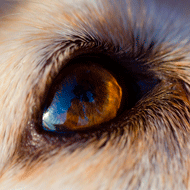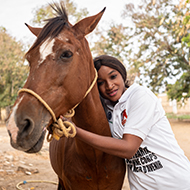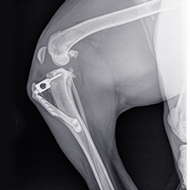After therapy, light sensitivity was restored in the retinas of both dogs and mice.
Gene therapy offers hope for humans suffering inherited condition
US scientists have managed to restore partial sight to blind dogs and mice using genetic therapy. Their success offers hope to thousands of people in Britain who suffer from an inherited form of blindness.
The new therapy was developed by researchers at the University of California, Berkeley. It has restored partial sight to animals suffering a similar condition to retinitis pigmentosa in humans.
Retinitis pigmentosa causes a gradual loss of vision from the periphery to the centre, preventing those affected from navigating their environment. Such conditions destroy the light-sensitive rods and cones in the eye, but leave other cells in the retina intact.
California scientists worked with vision researchers from the University of Pennsylvania's School of Veterinary Medicine (PennVet). The therapy involved inserting a gene into the ganglion and bipolar cells that survive after the rods and cones are destroyed.
As a result of the therapy, light responses were restored in the damaged retinas of mice and dogs. The mice were then able to navigate their way around a water maze as successfully as unaffected mice. They were also able to distinguish between flashing and non-flashing lights.
Researchers say the success of these trials suggests the therapy may also be able to restore human sight.
"Seeing that some of the UC Berkeley results with this pharmaco-optogenetic strategy that worked so nicely in mice could be reproduced by our group at PennVet in dogs with late-stage retinal degeneration was really exciting,” said William Beltran, an associate professor of ophthalmology.
"Use of such a clinically relevant large animal model allows us to begin tackling the next challenges on the road to translating this novel therapeutic strategy to human patients."







 Birmingham Dogs Home has issued an urgent winter appeal as it faces more challenges over the Christmas period.
Birmingham Dogs Home has issued an urgent winter appeal as it faces more challenges over the Christmas period.
